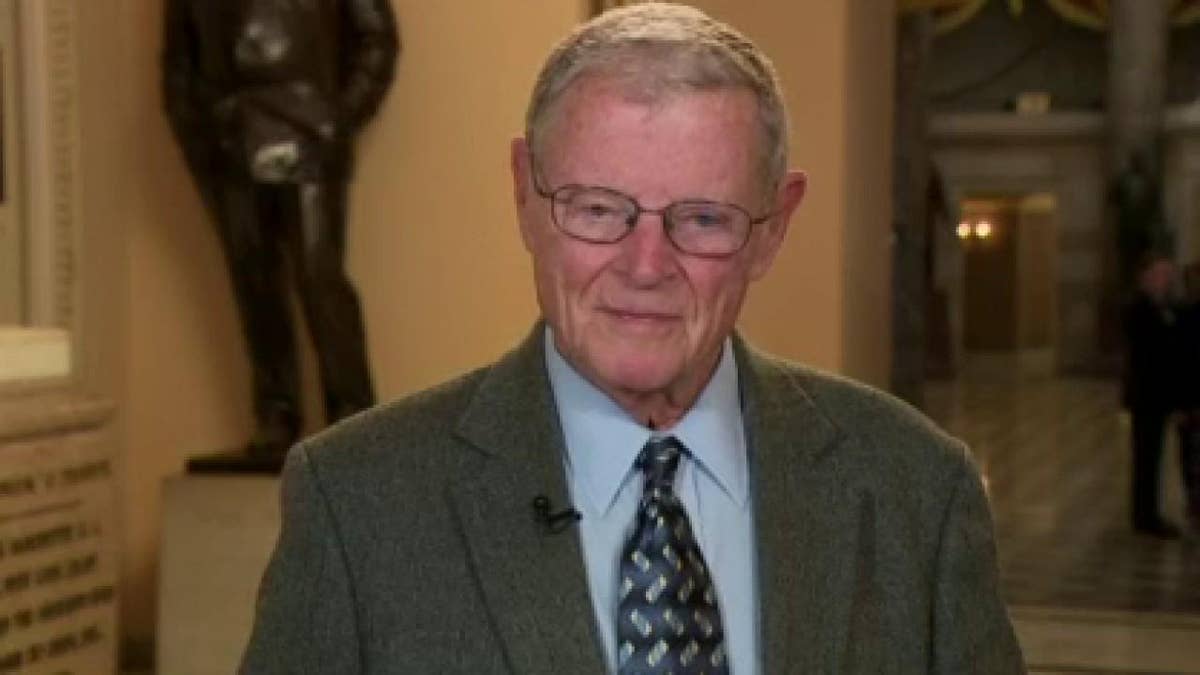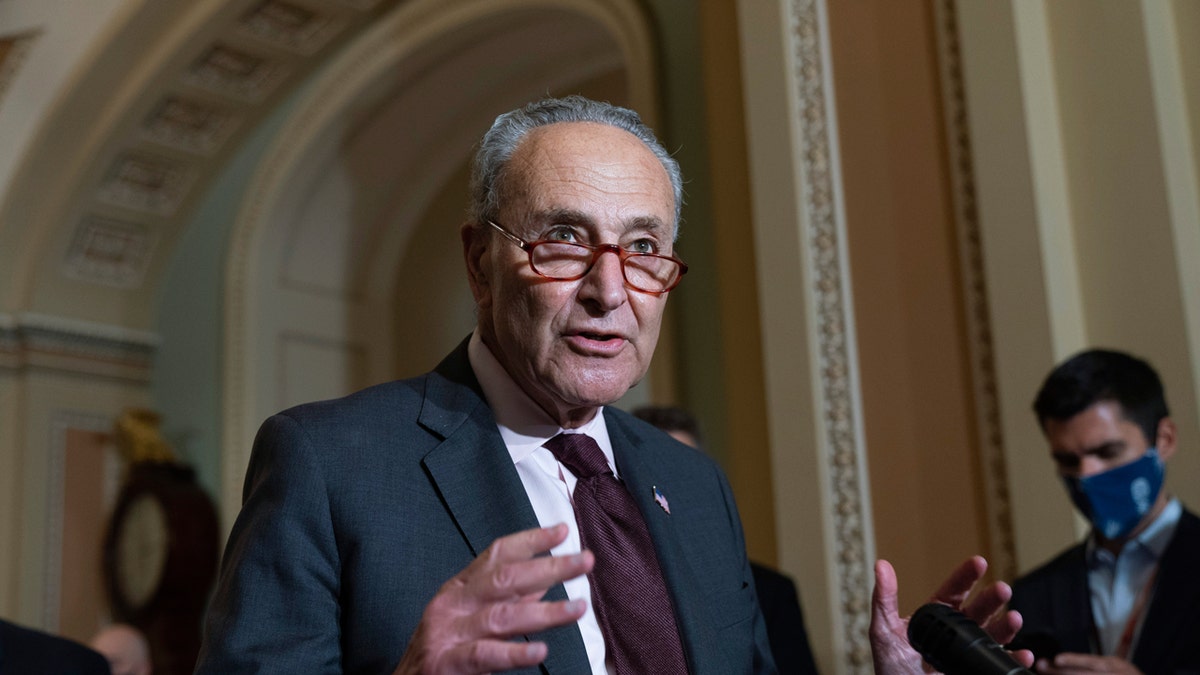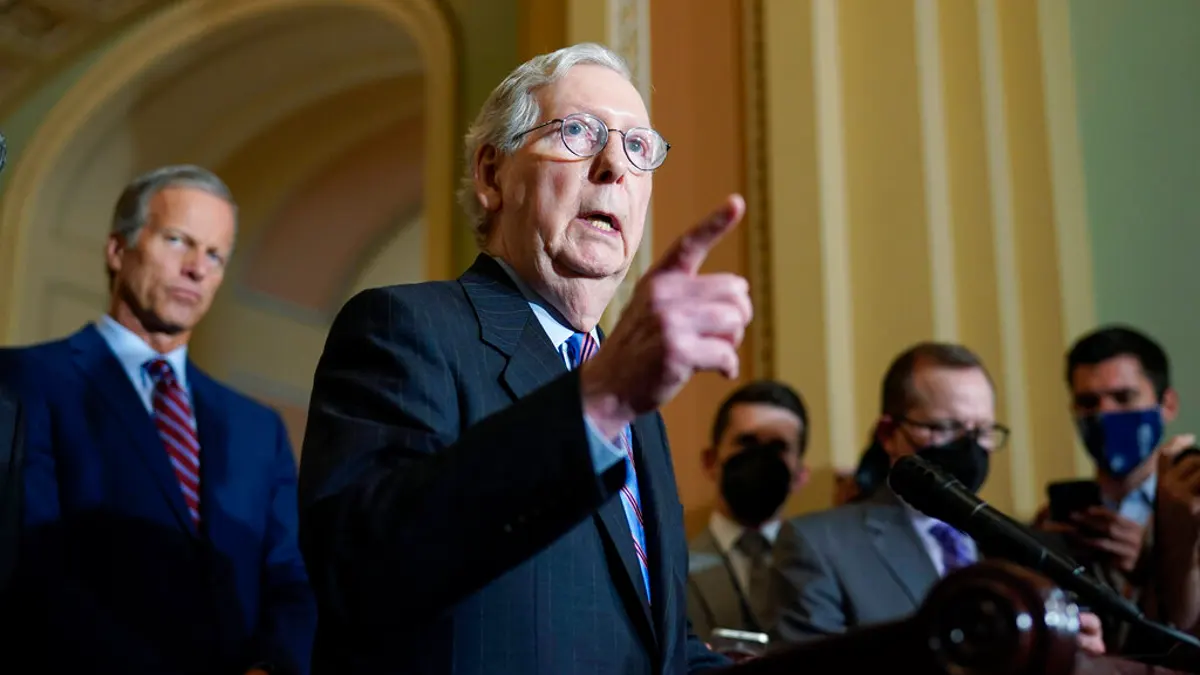Fox News Flash top headlines for November 30
Fox News Flash top headlines are here. Check out what's clicking on Foxnews.com.
Senate Republicans are taking aim at Senate Majority Leader Chuck Schumer, D-N.Y., for his late consideration of the 2022 National Defense Authorization Act, arguing the top Democrat's slow process imperils the troops and national security.
"Let me be clear: Sen. Schumer has put us in this position today. He waited more than two months after we filed the NDAA to bring it to the floor," Senate Armed Services Committee ranking member Sen. Jim Inhofe, R-Okla., said in remarks on the Senate floor Monday. "I think Americans back home are smart enough to understand that our service members deserve more. They deserve to be our priority in the Senate, and we need to show them that by providing a robust and open debate on the annual defense bill."

Sen. James Inhofe
At issue is the 2022 NDAA, a typically bipartisan piece of legislation that Republicans argue has been slowed by Schumer in the Senate. But critical time is ticking away, a senior GOP Senate aide told Fox News Tuesday, noting that "key authorities" expire on Jan. 1.
HAWLEY MOVING TO BLOCK DEM ATTEMPTS TO INCLUDE WOMEN IN MILITARY DRAFT
Some of the provisions that could be in jeopardy if the NDAA is not passed by Jan. 1 include "special pay and hazard pay for troops, authorities our military uses to defend our interests around the world, Impact Aid which supports local school districts, funding for the Armed Forces Retirement Home," the aide said.
The aide added that although it may seem to the public like a month is enough time to consider the bill, the legislation will still have to go through the House, and differences between the two versions must be ironed out before reaching the critical deadline.
Republicans have also argued that Schumer has refused to allow votes on amendments pushing back on Russia and China, instead attempting to forge ahead to a floor vote without debate over what Republicans consider critical questions.

Senate Majority Leader Chuck Schumer. (AP Photo/Jacquelyn Martin)
Enough Republicans voted against cloture to prevent debate from ending late Monday in an attempt to force consideration of their amendments, a move Schumer called "obstruction."
"Senate Republicans voted today to block the Senate from advancing the FY2022 Senate National Defense Authorization Act (NDAA), despite the fact that the legislation was crafted by Senate Armed Services Chairman Jack Reed (D-RI) and Ranking Member Jim Inhofe (R-OK) and contains 27 Republican-led amendments," Schumer said in a statement Monday after the failed cloture vote.
"This latest Republican obstruction comes after Senate Republicans rejected a bipartisan agreement before Thanksgiving from Senators Reed and Inhofe to hold roll call votes on 19 amendments (9 of which are led by Republicans), which would be more roll call votes on amendments to the NDAA in the Senate than the last four years under Leader McConnell combined," Schumer added.
GOP BLASTS SCHUMER FOR ‘DERELICTION OF DUTY’ AS DEFENSE SPENDING PACKAGE SITS IN SENATE
But Republicans counter that it was Schumer's delay in bringing the NDAA to consideration that has caused the timing issue, noting that Senate Armed Services Committee advanced the bill July 21, and it was filed Sept. 22.
GOP senators argued that this is the fifth latest in history the Senate has ever begun consideration of the NDAA, a timing issue Schumer himself created.
"The Democratic Leader wants to block the Senate from fully and robustly debating a number of important issues — from how to manage the fallout from the reckless Afghanistan retreat to how to respond to China’s dramatic and destabilizing military modernization to how to restore deterrence against an emboldened Iran," Senate Minority Leader Mitch McConnell, R-Ky., said in a statement Tuesday.

Senate Minority Leader Mitch McConnell. (AP Photo/J. Scott Applewhite) (AP )
CLICK HERE TO GET THE FOX NEWS APP
In his Monday floor speech, Inhofe argued that while it was crucial for the Senate move quickly to pass the NDAA, it was also critical that Schumer allow an un-rushed debate.
"We’ve got to get it done. We can’t rush it, and that is why I will be voting ‘no’ on cloture," Inhofe said. "That’s not an easy thing for me to do, but I believe we can get this bill in better shape. My vote is against the process — not the bill itself."
"We’re not delaying national security — no. This is the opposite," he added. "We are demanding that we show, through open and robust debate, that our men and women in uniform are our priority."





